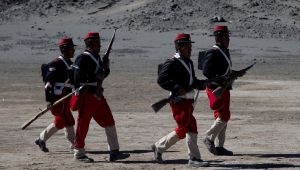The Spread of Violent Civil Conflict: Rare, State-Driven, and Preventable
Since the end of World War II, many U.S. military interventions in developing world civil conflicts have been motivated, in part, by a fear that if a given conflict is not stopped early, it may spread across borders later and destabilize an entire region. In this seminar, the speaker will explore the true frequency with which violent civil conflicts spread across borders and discuss why conflicts spread in some cases but not others.
Please join us! Coffee and tea provided. Everyone is welcome, but admittance will be on a first come–first served basis.




